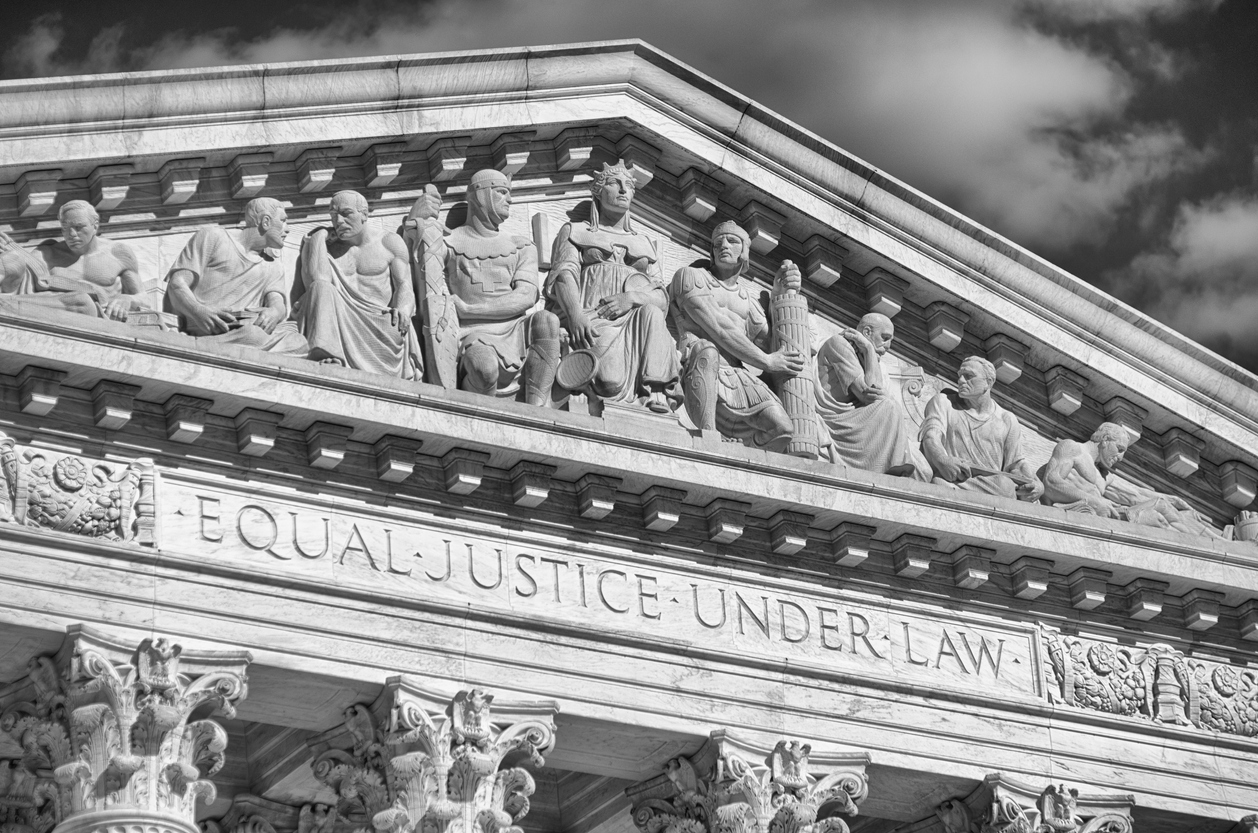Where else but on the fifty-yard line at a high-school football game should the determination be made that nothing is more American than public prayer. A Christian prayer, in particular. The Supreme Court ruling this week, another in a line of landmark cases, strongly defends the right of a person to express religious beliefs at school, even when they are teachers or coaches addressing students with disparate views who might feel left out or even offended by the speech. This decision, in effect, reverses the attitude held in the past that the main concern in a school should be for not establishing a particular religion or religious belief within a governmental institution. One reflex response to the ruling has been to call for Jews or Muslims or Wiccan teachers to make their way to center stage, or center field with candles, or prayer mats or prayer shawls to see if this open attitude to religious expression really goes beyond Christianity. In a way though, this response, even though tongue-in-cheek misses the main concern. The question isn’t whether this personal show of Christian belief is favored over other faiths, but whether the prayer amounts to a public declaration that almost everyone endorses the way of Jesus and the Christian dos and don’ts that have an impact even on those outside of church walls. Specifically Christian not because Christianity is any more restrictive than any faith or that one cannot learn from its precepts, but of recognizing that a certain expression of Christianity is already the established religion alienating those who profess different beliefs or, for that matter, hold no faith at all.
Having moved to Georgia over a decade ago, I have become used to the more porous wall between schools and religion-based activities. With or without the Supreme Court case, there are and will be student events whose purpose is to present faith as a positive force in students’ lives. More and more that opportunity has also been extended to the clergy of other religions even if they are still firmly rooted in a Christian framework. I have participated in Baccalaureate events for a couple of years in a few different schools, all of which have taken place at churches. While I have always been given welcome treatment, I am aware of how much easier it is to be included than colleagues of other faiths not given the honorary Christian status that Judaism is given. Also knowing that I may be the only person speaking who celebrates the holiness of all gender identities and sexualities, I make a point of explicitly doing so in my words which have never been met with any negativity. Still, while I wish I could say that those experiences have only left me with confidence about inclusiveness at school-related events, that is not the case.
Some clergy look to speak broadly of the lessons of their faith, but there is always at least one person who uses the occasion to make extremely explicit that Jesus is a necessity in every person’s life, no matter what anyone else tells them. One speaker went so far as to say, “If you are not a believer in Jesus you may learn something anyway, but if not, just tune me out as I address the believers who are here.” So while students of all backgrounds were included, the event was not inclusive.
And why should it be? Some of the speakers were students who were extremely articulate and passionate ambassadors for their own faith and faith values, including some for whom the issue of ending the right to an abortion is a rallying cry and another person’s sexuality or gender is a challenge to face, not a true self to embrace. There are no explicit guidelines or even expectations here. The words being shared are, as the term goes, “sincerely held religious beliefs,” and there is no reason a person can’t hold them and even try to convince others of their beauty and blessings.
A commonplace characterization of Judaism and Christianity has seemed to be reversed in the American public square. Christianity has always prized being universal, and open to all, while Judaism for better or worse, is seen as limited to a particular people, for whom it takes either ancestry or conversion to join. However, it is often representatives of Judaism and other minority faiths who find ourselves drawing from the Torah or other Scriptures, not a lesson of identity, but insights and wisdom that can touch anyone’s lives. Christianity has plenty of rich veins to mine for such broad messages, yet often in a public forum – a playing field, or a school dance, or at times a Baccalaureate, the focus is quite specific – the salvation available only through a singular path of faith. A path that runs only through one Savior.
And, again, why should anyone be told how to preach their own faith?
The question is not what a pastor, rabbi, or imam should assert, but when and where it is said. Not everyone is comfortable or confident telling others why they won’t stand for a prayer or participate in a lesson. Finding one’s way through the landscape and landmines of fitting in at school is fraught enough. When worship is happening in the middle of the field one should not have to feel like they have been forced to stay on the sidelines.

Michael Bernstein, a Rabbi, has served since 2009 as Rabbi of Congregation Gesher L’Torah, a vibrant and dynamic Synagogue community in north Atlanta where each person’s story is embraced and Judaism is personal. He was ordained as a conservative Rabbi at the Jewish Theological Seminary in New York in 1999. He and his wife Tracie have three children, Ayelet, Yaron and Liana.

